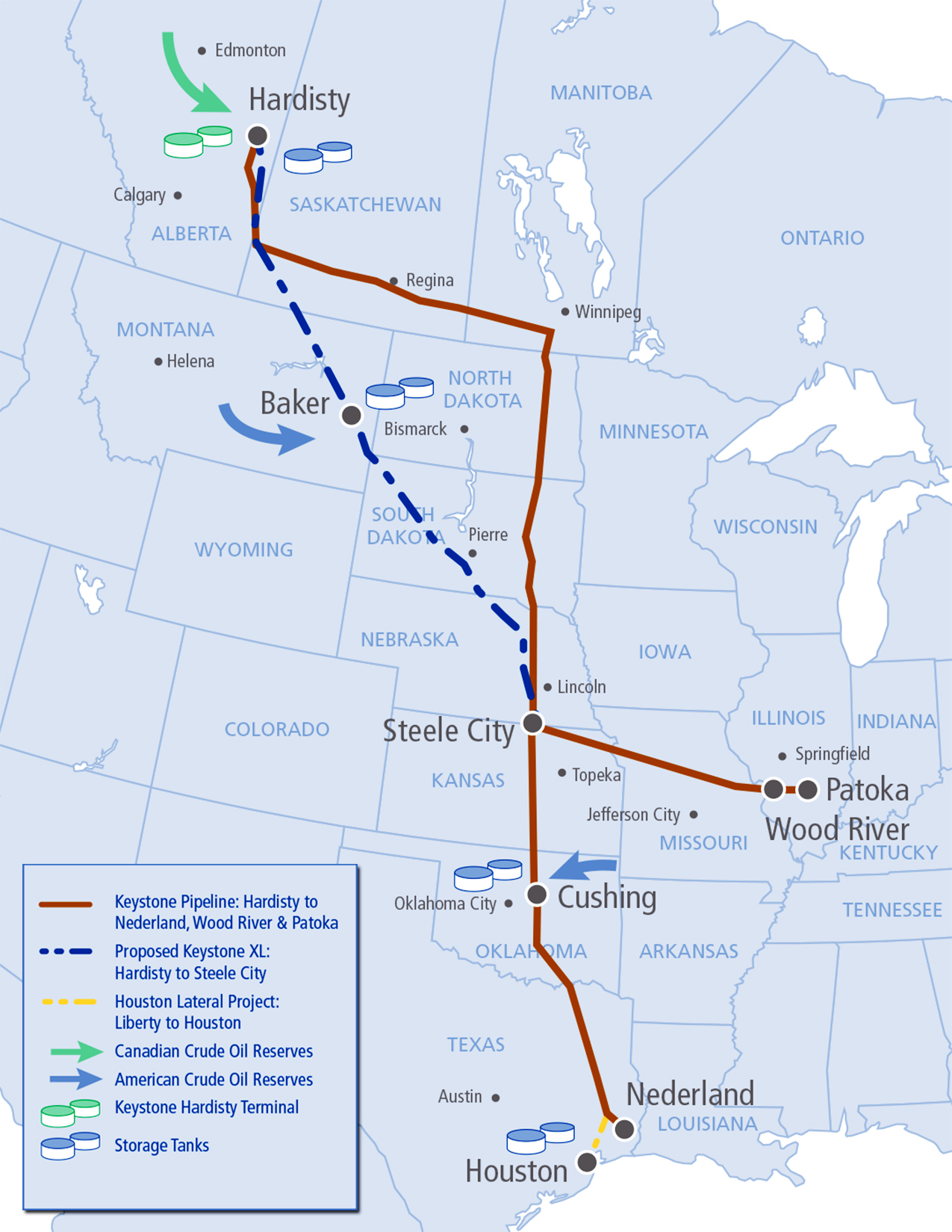WASHINGTON — Thousands of lives are sure to feel the impact of President Barack Obama's long-awaited decision Friday to reject the Keystone XL pipeline, which is bound to affect countless families, farms and businesses.
A trail of people touched by the decision stretches 2,000 kilometres from Canada to the midwestern U.S., where the star-crossed pipeline would have connected to its already functioning southern leg.
Many are celebrating victory. Others are crestfallen, fearful of the economic impact.
Merri Beck runs a clothing store in a town where the pipeline would have picked up some American oil. Her sales have dropped 27 per cent already this year amid collapsing oil prices.
Oilfield workers disappeared from her town of Baker, Mont., after the completion of the last pipeline project in the area. There are no new projects on the horizon. A coffee shop has closed, and she fears others will follow.
"I'm really sad," Beck said.
"With oil prices down, the economy in our oil town is suffering. There's vacancies everywhere — the campers' spots, hotels, the restaurants...
"My store too... It's really sad for our community."
In Friday's announcement from the White House, Obama pointed out that the number of jobs Keystone XL would have created was a drop in the bucket compared to the 13.5 million created in recent years.
Nonetheless, they mattered to Steve Baldwin, a commissioner with Fallon County in Montana.
There, the pipeline potentially meant a new water tower, and new plumbing to replace infrastructure from the 1940s and 1950s.
Waste water was bubbling up onto people's properties in one neighbourhood, where the sewage system was just modernized. They're hoping to make other improvements — and Friday's news will make it that much harder.
Fallon County is just one of many that would have seen an influx in resource royalties.
Keystone XL would have boosted his county's revenues by a whopping 64 per cent — $7 million a year — and those of some neighbouring counties by as much as 117 per cent, according to a U.S. State Department study.
"It's huge," said Baldwin. "With respect to the revenues from the jobs coming through town — and the revenues in taxes afterwards... Our infrastructure is so depleted."
Like others in his area, Baldwin said he's hopeful the next president revisits the decision. People will be angry at Obama, he added.
"It's basically just a political tool," he said of Keystone. "Unless you can show me science that says we don't need petroleum products anymore."
But for many families, this is a joyful moment.
The Keystone debate has been torturous for some opponents who've been living in limbo.
Almost two years ago, when The Canadian Press visited a family farm in Nebraska, Jeanne Crumly wept at the thought of a pipeline being forced through the land of a multi-generational property her husband had painstakingly restored.
The Crumlys are among the project's original opponents.
Long before it became a cause celebre for the international climate-change movement, Keystone XL was a regional issue — deemed by a few Nebraska farmers as a nuisance, and a potential threat to their groundwater.
It divided families. Most farmers in Nebraska signed onto easement deals. One part of the Crumly family accepted TransCanada Corp.'s offer, in exchange for access to their land.
Another part fought it.
Now, after five years of fights at town-hall meetings, protests and court cases, Crumly is overjoyed.
"Wow. That is enormous relief," when informed of Friday's news, describing it as an early Christmas present.
"We have been pursuing this from every legal means, trusting that right would prevail. But you never know until it happens.
"It's probably been five years for us... A small group of principled people, pursuing a goal, can actually effect change... The small guy doing the right thing, versus a big corporation."
Alexander Panetta, The Canadian Press



Comments